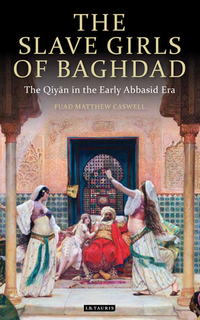Mentions
When I stumbled upon this book, I couldn’t believe what it revealed. I had been engaged in an in-depth study of the troubadours, those inventors of the modern Western love song—indeed, they legitimized singing about personal emotions at a time when that was virtually forbidden throughout Europe. I had consulted all the leading scholars who wrote about troubadour music, yet none of them had a clue about these female slave singers from the early Abbasid era in Baghdad, who anticipated almost every ingredient in the troubadour worldview. Academics were still struggling to comprehend the relevance of the kharja of the muwashshah (an Iberian antecedent of the troubadour lyric that nobody had noticed until 1948), but were ignorant of the qiyan back in Iraq, who provide the solution to the most urgent mysteries of multicultural European music of the last thousand years. Even today we sing about being a slave to love, and it’s because the language of the love song was invented by actual slaves.
I later was able to track the dissemination of this music, which traveled from Baghdad through North Africa and into the Iberian peninsula, where the troubadours absorbed it and brought it back to the South of France. And from there it entered the broader streams of Western music. This is a decisive moment in music history, but has been completely ignored for too long. Spurred on by Caswell, my research provided a breakthrough for my book on the history of the love song, but it also laid the foundation for my later inquiries into how enslaved, poor, and marginalized communities have often been the source for musical innovations—a key theme in my book Music: A Subversive History.
It’s no exaggeration to say that female slave singers of the ninth and tenth centuries helped me unlock the inner workings of how musical innovations appear and are disseminated. But once again, the turning point was reading an obscure book that no one considered relevant to music—and, for that very reason, opened doors for me that would have, otherwise, remained locked.
